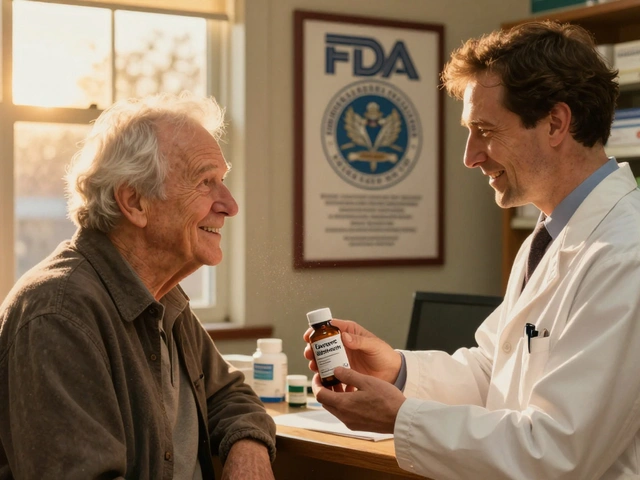Side Effects: Understanding Medication Risks and How to Stay Safe
Ever felt unsure about the possible side effects of a medicine you're taking? You're not alone. Side effects can range from mild annoyances like dry mouth or drowsiness to more serious reactions that need medical attention. Knowing what to expect helps you make smarter choices and avoid unnecessary worries.
Medications are designed to help, but no drug is 100% free from side effects. Sometimes, what helps one person can cause unwanted effects in another. This is why reading medication guides and talking to your doctor or pharmacist about side effects is super important. They can explain which symptoms are common and harmless, and which ones should prompt a visit to the clinic.
Common Side Effects and What to Watch For
Some side effects happen right away, while others might show up after days or weeks. For example, antibiotics like Ciplox (ciprofloxacin) might cause nausea or diarrhea, usually going away when treatment ends. On the other hand, heartburn drugs like Zantac saw safety concerns that led to recalls, proving that side effects can sometimes come with surprises.
It helps to keep a simple symptom diary when starting a new medication. Write down any new feelings or physical changes and share this info with your healthcare provider. Don't ignore side effects that affect your daily life, such as persistent headaches, unusual fatigue, or allergic reactions like rash or swelling.
Handling Side Effects: Tips to Stay Comfortable and Safe
If you get a side effect, don’t just stop your medication unless your doctor says it’s okay. Sometimes, adjusting the dose or switching to a different drug can solve the issue without losing the benefit. Also, take meds exactly as prescribed—skipping doses or doubling them can make side effects worse.
Some tips to reduce side effects include taking pills with food if your stomach feels upset, staying hydrated, and avoiding alcohol or other substances that might interact badly. For kids, choosing the right form of medicine, like syrup or tablet, can affect comfort and safety.
Remember, your health provider is your best guide for dealing with side effects. They can suggest how to lessen them or decide if you need another treatment. Don’t hesitate to ask questions and speak up if something feels off. Staying aware and informed is your best defense when using medications.
DPP-4 Inhibitors and Joint Pain: What You Need to Know About This Side Effect
DPP-4 inhibitors help control blood sugar in type 2 diabetes, but they can cause severe joint pain - a side effect many patients and doctors miss. Learn the signs, what to do, and how to stay safe.
ReadWhy Do Medications Cause Side Effects: The Science Behind Drug Reactions
Medications cause side effects because they interact with more than just their intended targets. Learn how genetics, drug metabolism, off-target effects, and immune responses lead to adverse reactions - and how science is making drugs safer.
ReadCetirizine vs Levocetirizine: Which Causes Less Drowsiness and Why
Cetirizine and levocetirizine treat allergies equally well, but levocetirizine causes less drowsiness. Learn why the chemical difference matters and which one is right for you.
ReadZetia (Ezetimibe) Guide: Benefits, Side Effects & FAQs
Zetia (ezetimibe) lowers cholesterol, often combined with statins. Get clear info on how it works, dosing, benefits, side effects, interactions and safety tips.
ReadRisperdal: Uses, Side Effects, and What to Expect From This Antipsychotic Medication
Risperdal, commonly known by its generic name risperidone, is an antipsychotic medication used to treat various mental health conditions like schizophrenia, bipolar disorder, and irritability in autism. This article dives deep into how Risperdal works, who might benefit from it, and what you really need to watch out for if you or someone you care about is prescribed this drug. You’ll find tips, practical facts, and personal stories to help you understand the impact of this medication on everyday life.
Read









